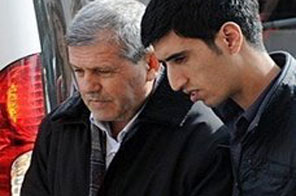Turkey's defence chiefs assess 'serious' coup plot
ISTANBUL: Turkish prosecutors will on Wednesday question some of the suspects arrested over an alleged military coup plot, as US and European Union officials expressed concern over the affair.
The accused will also be brought before a judge to face possible charges over the alleged plot, which investigators say was designed to topple the Islamist-rooted government, the Anatolia news agency reported.
Police detained more than 40 suspects Monday over a purported plan codenamed "Operation Sledgehammer" which dated back to 2003.
The alleged plot was aimed at bringing down the Islamist-rooted Justice and Development Party (AKP) administration.
Seventeen retired generals and four active-duty admirals were among those detained on charges of "attempting to remove the government through force and violence" and brought for questioning in Istanbul, reports said.
The country's defence chiefs held a crisis meeting Tuesday to discuss the affair.
The suspects allegedly planned to bomb mosques and escalate tensions with Greece in a bid to force the downing of a Turkish jet, thus destabilising the government and forcing its downfall.
Both US and EU officials on Tuesday stressed that the investigation be carried out following due process.
A spokeswoman for European Union Enlargement Commissioner Stefan Fule said the allegations were a "serious matter of concern.
"Turkish citizens are entitled to hear the entire truth on these cases," spokeswoman Angela Filote said.
"That's why the investigation must be exemplary and carried out in full respect of the principles and standards of a fair judicial process."
US officials also stressed the need for an exemplary investigation.
"We want to see this proceed in a transparent process in accordance to Turkish law," State Department spokesman Philip Crowley told reporters.
Among those arrested were ex-air force chief Ibrahim Firtina, former navy chief Ozden Ornek and the former head of the Istanbul-based First Army, Cetin Dogan, who is accused of spearheading the plot.
"Operation Sledgehammer" was exposed in January by the liberal Taraf newspaper, which said the plan was discussed in March 2003.
It published transcripts of audio tapes that appeared to confirm some kind of anti-government action was considered at the gathering.
The general staff -- which has recently complained of a "psychological smear campaign" -- has said the seminar involved the discussion of war-time contingency plans. It has denied there was any coup plot.
Turkey's staunchly secularist army has traditionally wielded heavy political influence and unseated four governments since 1960.
The last time it intervened was in 1997 when it forced Islamist prime minister Necmettin Erbakan to resign.Related article: Arrests deepen Turkey power struggle
The AKP, which opponents have accused of secret ambitions to overthrow Turkey's secular system, was formed by moderates from Erbakan's now-banned party.
Turkey's two largest opposition parties slammed the government over the latest arrests.
Main opposition leader Deniz Baykal questioned why such an operation was mounted against retired generals "watching TV at home in pyjamas and slippers" over allegations dating back seven years.
Nationalist opposition leader Devlet Bahceli said the government was acting with "hatred" and "feelings of revenge" and called for early elections.
Hugh Pope, a specialist on Turkey at the International Crisis Group think tank, expressed doubt that this was a "witch hunt" against the army.
The judiciary "would certainly not have taken so many high-profile people into custody unless they had an absolute certainty in their mind that this is a real case," he said.
Retired and serving soldiers are already among dozens of defendants on trial over the so-called Ergenekon network, which allegedly plotted to foment unrest to prompt a military coup.
The credibility of the investigation into this alleged conspiracy has waned with the arrest of academics, journalists and writers known as AKP critics.
In 2008, the AKP narrowly escaped being banned for violating Turkey's secular system.






